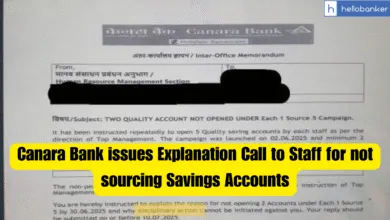Good News For Farmers! Government will spend Rs 1 Lakh Crore to support Farmers

| ➡️ Get instant news updates on Whatsapp. Click here to join our Whatsapp Group. |
The Modi government is going to spend more than Rs 1 lakh crore to support sustainable farming, secure food supplies, and help India become more self-sufficient in agriculture, according to Union Minister Ashwini Vaishnaw.
Two major programs will help achieve this: PM Rashtriya Krishi Vikas Yojana (PM-RKVY) and Krishonnati Yojana. The government has set aside Rs 57,075 crore for PM-RKVY and Rs 44,247 crore for Krishonnati Yojana, and these funds will be given to state governments to use.
The central government will pay Rs 69,089 crore, while the states will need to contribute Rs 32,233 crore. This funding plan was confirmed after the cabinet approved it.
PM-RKVY Schemes:
PM-RKVY covers several important areas for improving agriculture. Some of the key schemes include:
- Soil Health Management: To make sure the soil remains fertile and productive.
- Rainfed Area Development: For farming in areas that depend on rain, rather than irrigation.
- Agroforestry: Growing trees along with crops to improve farming and the environment.
- Paramparagat Krishi Vikas Yojana: Encouraging organic farming.
- Agricultural Mechanisation: Promoting the use of machines in farming, including managing crop residue (which can otherwise cause pollution).
- Per Drop More Crop: Promoting efficient water use in farming.
- Crop Diversification Program: Encouraging farmers to grow a variety of crops instead of relying on just one type.
- RKVY DPR Component: Focus on detailed project reports to improve planning and execution.
- Accelerator Fund for Agri Startups: Providing funds to support new agricultural businesses and innovations.
Flexibility for States:
State governments can move funds from one scheme to another based on what their region needs most. This flexibility helps states focus on their specific agricultural challenges and priorities.
Streamlining and Efficiency:
The government plans to merge several related schemes to avoid confusion, reduce overlap, and ensure all programs work well together. By simplifying these schemes, the government hopes to tackle important agricultural issues such as:
- Ensuring enough nutritious food for everyone.
- Making farming more sustainable and better prepared for climate change.
- Developing value chains, which means helping farmers get their products to market in better ways.
- Getting more participation from private companies in agriculture.
- By improving coordination and simplifying approval processes, state governments will be able to create better, more detailed plans that suit their own agricultural needs. For example, instead of having to get separate approval for each program, state governments can now get a single approval for their entire Annual Action Plan (AAP), making implementation faster and more efficient.
Strategic Focus:
The government’s plan is not just about increasing crop production but also about addressing bigger challenges like climate change, improving farming methods, and building stronger value chains that connect farmers to markets. Each state’s plan will outline a strategy that links all the programs to a larger national goal of improving agriculture.
